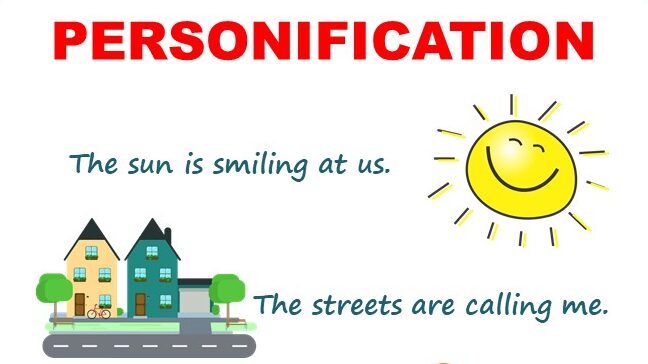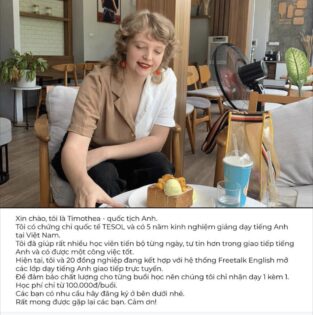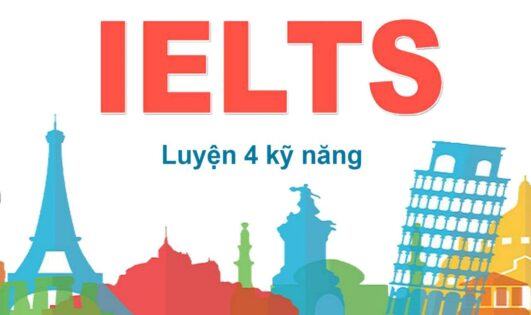Nhân hóa tiếng Anh là gì? Nhân hóa là biện pháp tu từ quen thuộc trong văn viết và văn nói hằng ngày mà đôi khi chúng ta không nhận ra. Hãy cùng ngolongnd tìm hiểu nhân hóa là gì và các kiến thức liên quan trong bài viết sau đây nhé!

Nội dung chính:
Nhân hóa tiếng Anh là gì?
Nhân hoá tiếng Anh là personification có nghĩa là gắn cho đồ vật, vật nuôi, cây cối… tên gọi, suy nghĩ, tình cảm, tính cách và hành động như con người.
Theo định nghĩa nhân hóa lớp 3, lớp 6, đây là biện pháp tu từ trong đó gọi hoặc tả các sự vật, hiện tượng bằng các từ ngữ thường được dùng cho con người, giúp chúng trở nên gần gũi, sinh động và gắn bó với con người hơn.
Nhân hoá là biện pháp tu từ trong đó một sự vật hoặc con vật được mô tả bằng những đặc điểm, tính chất, hành động của con người. Biện pháp này giúp các sự vật hoặc con vật được đề cập trong câu trở nên gần gũi, sinh động, và hấp dẫn hơn đối với người nghe hay người đọc.
Ví dụ 1:
The vending machine swallowed my money and then refused to give me my coffee. (Cái máy bán hàng tự động nuốt tiền của tôi nhưng lại từ chối đưa tôi cà phê.)
Trong ví dụ trên, những động từ như “swallow” (nuốt) và “refuse” (từ chối) diễn tả những hành động của con người. “Vending machine” (máy bán hàng tự động) là một vật vô tri, vô giác, nó không thể nuốt hay từ chối ai đó như con người. Tuy nhiên, ý của tác giả là: cái máy nhận tiền của tôi vào mà không làm được cà phê, hay nói cách khác, cái máy bán hàng đã bị hỏng, không còn hoạt động được nữa.
Ví dụ 2:
The letters are dancing on the page before my tired eyes. (Những con chữ đang nhảy múa trên trang giấy ngay trước đôi mắt mệt mỏi của tôi.)
Ở ví dụ này, đối tượng “the letters” (những con chữ) được gán cho hành động của con người “dance” (nhảy múa) – trong thực tế, chữ không bao giờ có thể nhảy múa như con người. Để hiểu được ý nghĩa của câu này, người học cần liên tưởng phong phú hơn: vì mắt tôi quá mỏi nên nhìn thấy chữ lên chữ xuống, không còn thấy rõ nữa.
Vận dụng đặt câu có sử dụng biện pháp nhân hóa trong tiếng Anh
– Người ta thường nhân cách hóa một con vật khi biết rõ giống của nó.
Ví dụ:
Nó là một con mèo (cái) đẹp.
I don’t want a tom-cat, take him away.
– Người ta cũng thường dùng SHE, HER để chỉ các loại các máy móc, xe cộ, máy bay, tàu thuyền.
Ví dụ:
Do you like Paris? – Ah, yes, she’s a queen among cities.
-Here are 50 examples of personification:
- Justice is blind and, at times, deaf.
- Money is the only friend that I can count on.
- The cactus saluted any visitor brave enough to travel the scorched land.
- Jan ate the hotdog despite the arguments it posed to her digestive system.
- The world does not care to hear your sad stories.
- After freedom’s sweet kiss, she could never return to the doldrums of the factory.
- Peggy heard the last piece of cheesecake in the refrigerator calling her name.
- The sorry engine wheezed its death cough.
- Drugs dragged him into this place and they wouldn’t let him leave alive.
- The buses can be impatient around here.
- These casinos are always hungry enough to eat your dinner.
- He sang a lonely song to the moonlight.
- The candle flame danced in the dark.
- Thunder grumbled and raindrops reported for duty.
- The moon turned over to face the day.
- As fall turned to winter, the trees found themselves wearing white.
- The brown grass was begging for water.
- Our society needs strong leaders.
- One unhappy icicle wasted away in the day.
- The sunflowers nodded in the wind.
- Most pianos have pretty good manners but Stephan can make them sound rude.
- The traffic noises argued long into the night and finally Cal went to sleep.
- The angry storm pounded the tin shelter.
- A school of rainbow trout swam across the mouth of the river.
- The silence crept into the classroom.
- Father Time can always catch up to you, no matter how fast you run.
- This city never sleeps.
- The sun stretched its golden arms across the plains.
- My heart has been skipping around in my chest since I saw her.
- The child of morning, rosy fingered dawn, appeared.
- Any trust I had for him walked right out the door.
- And with those four words her happiness died.
- The cigarettes stole his health and spent it on phlegm.
- Kiss your integrity goodbye.
- The trees dropped their leaves and rested.
- I overheard the streets talking about you.
- Winter’s icy grip squeezed his rib cage.
- The business world would chew you up and spit you out.
- The clouds pushed each other around in the sky.
- He had little to live for now that his dreams were dead.
- The smell of smoke tattled on the delinquent.
- The wind whispered the rumors of the forest.
- The jittery hands of corruption orchestrated the affairs at city hall.
- Still waters shivered in the wind.
- Those greedy weeds have starved the petunias.
- A case of cupcakes can be quite charming to an empty stomach.
- December light is brief and uncharitable.
- This morning had friendly greetings for peaceful sleepers.
- The party died as soon as she left.
- Light had conquered darkness.
-Các ví dụ khác về nhân cách hóa trong giao tiếp hàng ngày
- The book provides the information that we need to understand the language.
- The car was suffering and needed some attention.
- The stars were dancing playfully in the sky.
- The tattered house appeared to be distressed.
- The red car raced by, screaming for someone to notice its speed.
- The bread jumped out of the toaster.
- He was aware that opportunity had come knocking at his door.
- The popcorn jumped around the microwave.
- She did not see that her last chance was about to walk out of the door.
- The new record from Elton John flew off the shelves.
- The wind howled through the forest.
- I fell over because the kerb jumped out before me.
- The news took me by surprise when I heard it.
- Before I knew it, it was midnight, time had crept up on me.
- The hurricane attacked the city leaving it in ruins.
- My life passed me by.
- The sun glared down from the sky on that hot summers day.
- The evil tree lurked in the shadowy woodland.
- When I lost my job, my life screeched to a halt.
- The waves lashed out on the ocean, causing the boat to falter.
- My alarm clock loves to disturb me every morning.
- Her tone was so vivid that as she read, the words leapt off the page.
- I can hear Australia calling my name.
- The avalanche devoured everything that stood in its way.
- The wind whispered through the tall reeds.
- Time and tide do not wait for anyone.
- The fire swallowed everything in its path.
- The moon peeped through the clouds in the sky.
- I took a speaking exam but I was so nervous that the words left my mind.
- The sun smiled at me that morning, and I knew it was going to be a good day.
- Romance novels were her only companion.
- The piece of carrot cake is calling out for me.
- The candle’s flame danced in the dimly lit room.
- The rain forest stood still and all the animals were quiet.
Kết luận
Bằng cách tìm hiểu sâu hơn về cách nhân cách hóa được sử dụng và nó được sử dụng để làm gì, chúng ta đã học được rằng đó là một dạng ngôn ngữ tượng hình, trong đó các vật thể vô tri được thể hiện các đặc điểm của con người như cảm xúc, cử chỉ, mong muốn, lời nói và hơn thế nữa. Nó được sử dụng phổ biến trong ngôn ngữ hàng ngày và cũng được sử dụng thường xuyên trong văn học. Đó là một cách làm cho một mô tả trở nên độc đáo và sinh động hơn nhiều và giúp người đọc hoặc người nghe hiểu rõ hơn về những gì đang được mô tả.










